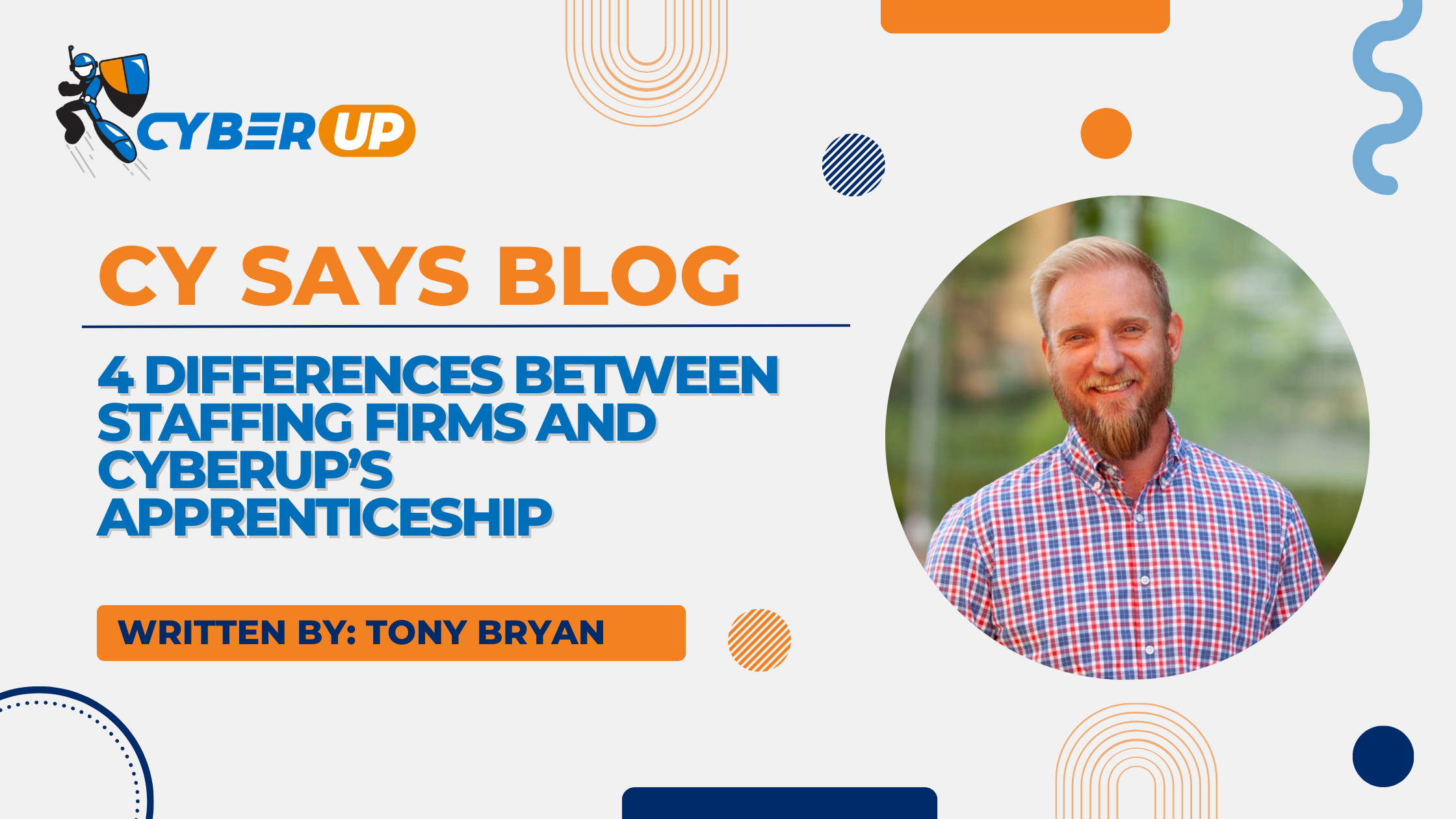Apprentice Success Story: John Jones
In the ever-evolving landscape of cybersecurity, John Jones found himself facing a difficult challenge - the transition into the cybersecurity career field without experience. His background consisted of experience in IT Operational Support, Customer Service, and project experience in a healthcare infrastructure. However, his journey took a turn when he discovered CyberUp, an ally that helped him break through the barriers and also provided a structured path to success.
John is an aspiring cybersecurity professional who struggled with the initial difficulty of entering the cybersecurity field, hindered by a lack of experience. This common stumbling block for many aspiring cybersecurity professionals became the drive for finding a program that could bridge the gap and open doors to organizations willing to invest in training new talent.
The turning point for John was CyberUp, a program that served as more than just a stepping stone; it was a catalyst for his growth. CyberUp not only connected him with First Bank, an organization ready to nurture and develop new talent but also provided a structured framework that became instrumental in maintaining focus and setting goals in his cybersecurity career.
As an Information Security Analyst with First Bank, John's favorite project involves testing Insider Threat Management tools. This not only showcases his technical ability but also highlights his creative thinking in enhancing the effectiveness of security measures. Beyond the apprenticeship program, John is focused on furthering his education and professional development. His goals include studying for certifications, exploring different product suites, diving into networking topics, and gaining insights into lean Six Sigma.
One of the persistent challenges in cybersecurity that John noticed is that effective communication is important, especially to those without a technical background. John recognizes this challenge and emphasizes the need to convey the 'why' behind security policies in a way that resonates with non-technical individuals. This skill, he believes, is crucial in making cybersecurity principles understandable and actionable.
While John doesn't have a favorite quote or affirmation, his philosophy in cybersecurity revolves around patience with the learning curve and being humble. John acknowledges that the field is vast and ever-changing, and embracing the constant learning process is key to success. John also advises prospective CyberUp candidates, emphasizing the importance of honing written and verbal communication skills. In cybersecurity, clear articulation of technical concepts is as vital as the technical knowledge itself.
John's apprenticeship experience instilled confidence in his new career and gave him a sense of direction. The collaborative learning environment with fellow apprentices stood out to him as the best part of the experience. The camaraderie and shared growth within the program created a community for John that fueled motivation and mutual support.





.png)
.png)
.png)

.png)
